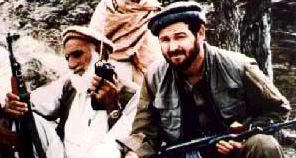By my count, Thursday will be the 100th day since Obama promised, in his State of the Union Adress delivered February 12, “to engage Congress to ensure not only that our targeting, detention and prosecution of terrorists remains consistent with our laws and system of checks and balances, but that our efforts are even more transparent to the American people and to the world.”
Back then there were, officially at least, just a handful of Gitmo detainees on hunger strike. And it’s possible — if DOJ used the two 45-day gags on subpoenas they permit themselves — a subpoena seizing the phone records for 21 AP phone lines had already been issued.
After Obama promised more transparency on drones and other counterterrorism programs, Members of Congress continued to have to demand minimal transparency. On February 20, Rand Paul sent his third request for that information. On February 27, House Judiciary Chairman Bob Goodlatte repeated that Committee’s request to see OLC’s drone targeting memos; he also expressed anger that the Administration had refused to send a witness to the hearing.
On March 7, Eric Holder hinted that we would “will hear from the President in a relatively short period of time” on drones and transparency and counterterrorism. On March 8, guards at Gitmo shot non-lethal bullets at detainees. The following day US conducted a drone strike in Pakistan, one of two strikes that month.
On March 11, Progressive Members of Congress sent a letter asking for information on drone targeting.
On April 9, McClatchy reported that most drone strikes had hit low level militants, contrary to public claims; it also revealed the intelligence reports themselves were false.
On April 10, the House Judiciary Committee finally threatened to subpoena the OLC memos authorizing the killing of an American citizen; that was at least the 23rd request for such information from Congress. A week later the Committee would finally get a promise to see just those memos, memos squarely within the Committee’s oversight jurisdiction.
On April 13, the military locked down Gitmo, effectively depriving most detainees of the human company they had enjoyed for years. On that day, 43 men were hunger striking.
On April 14, Samir Haji al Hasan Moqbel described, in a NYT op-ed, “I’ve been on a hunger strike since Feb. 10 and have lost well over 30 pounds. I will not eat until they restore my dignity.” That same day, the US launched one of two drone strikes in Pakistan that month.
On April 15, the Tsarnaev brothers attacked the Boston Marathon, reportedly in retaliation for treatment of Muslims in Afghanistan and Iraq.
April 17, a US drone struck the Yemeni village of a Yemeni, Farea al-Muslimi, already scheduled to testify before the Senate Judiciary Committee about how drones turn Yemenis against the US.
On April 21, the number of hunger strikes at Gitmo reached 84 — over half the men there. Six days later, on April 27, that number reached 100. Three more men have since joined the hunger strike.
As those numbers were growing, on April 25, Dianne Feinstein called on Obama to transfer those detainees who have been cleared. On April 30, Obama renewed his promise to close Gitmo. The next day, the White House made clear that the moratorium preventing almost half the detainees, men who have been cleared for transfer, to return home to Yemen, remained in place.
On May 10, the AP learned that DOJ had seized phone records from 21 phone lines with no notice, potentially exposing the sources of up to 100 journalists.
On May 16, in a hearing querying whether Congress should eliminate or expand the September 18, 2001 Authorization to Use Military Force, Assistant Defense Secretary Michael Sheehan testified the war on terror would last at least 10-20 more years. He also said DOD won’t be taking over CIA’s side of the drone war anytime soon.
Saturday, a drone strike killed at least 4 thus far unidentified men in Yemen.
Which brings us to Thursday when, the WaPo details, Obama will give a speech telling us once again the drone strikes are legal, his desire to close Gitmo is real, and leaks his new CIA Director exacerbated are serious. He will, apparently, also tell us how he plans to make his counterterrorism plan look more like what he promised it would look like 4 years ago.
President Obama will deliver a speech Thursday at the National Defense University in which he will address how he intends to bring his counterterrorism policies, including the drone program and the military prison at Guantanamo Bay, Cuba, in line with the legal framework he promised after taking office.
In the interim between when he promised this transparency and when he’ll start to sort of deliver it (but not, apparently, any actions to close Gitmo), about 7% of his second term will have passed.
Some of the delay, apparently, comes from the need to address the issues that have been festering during the delay.
Obama was prepared to deliver the speech earlier this month, but it was put off amid mounting concerns over a prisoner hunger strike at Guantanamo Bay and more recently the Justice Department leaks investigation — both of which the revised speech may address.
But otherwise, it appears it has taken 100 days to be able to craft a speech good enough to make his paranoia about secrecy and lip service to human rights in counterterrorism look like something else.
Ah well, at least they’ve sharply curtailed drone strikes while they’ve been writing a speech.

